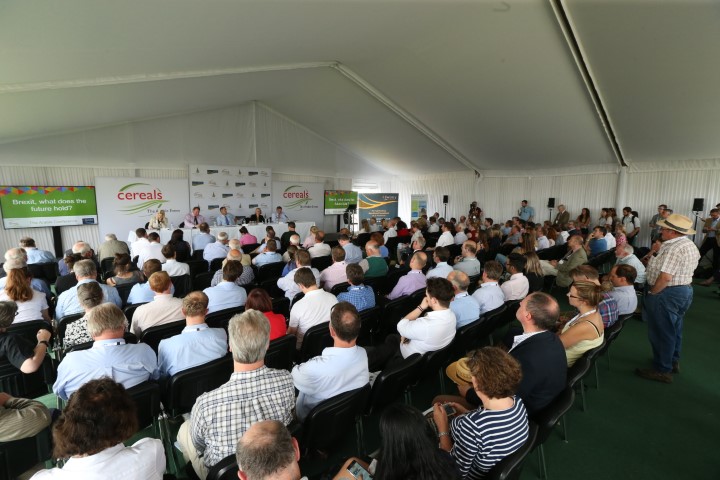Transition is a key focus for many, if not all farms as they prepare for life post-BPS – whether that’s to financially future-proof the business or move in a different, environmental direction.
Questions like how to make the environment pay, how to cut costs while maintaining productivity and how to deal with global market uncertainty will form the bedrock of Cereals seminars in the AHDB Theatre, as growers seek to find answers to these thorny subjects.
Spanning two days, the programme, themed ‘Code Green for Farming’ is packed with a wide range of practical and informative seminars. These cover how legislation, innovation, skills and partnership support the continued delivery of high-quality food while meeting the environmental needs of society and financial requirements of the arable farming sector.
Basic Payments will be eradicated in the next five years, and for most cereal farmers, environmental schemes will not cover that loss. Steve Dunkley, head of business resilience at AHDB, will cover ‘Practical ways to manage the transition’ in his presentation.
“Through AHDB’s Farm Business Review service, we are seeing a lot of arable businesses looking to become more efficient, undertake benchmarking, and manage fixed costs. They are also looking at adopting technologies like GPS to aid efficiency,” he says.
“The Sustainable Farming Initiative will require investment to reach the chosen standard – it is not a like-for-like payment.
“It requires investment in soil testing and ground cover to meet the soil standard, for example. Some cereal farmers will ask whether it is worth the extra cost, and instead look towards creating a more efficient and productive core business,” he adds. “Each farm will have to assess the costs and benefits of participating in SFI as part of a wider review of their individual farm business.”
Kate Russell, chief operating officer of Tellus Natural Capital, will chair a session on ‘Making the environment pay’. Policy makers and big industry are increasingly focused on environmental improvement, but how can farmers secure an income from this emerging market involving both public and private investment?
“At the moment there is a lot of information being generated and discussion going on, but it can be hard to see the wood for the trees,” says Ms Russell. “Environmental markets are still in the developmental phase, but there is an urgent need for financially sustainable solutions to environmental problems.
“Farmers are right to be cautious because we are all learning as we go, but we need to give people the tools to understand where they are heading. This seminar will help to show where there are clear pathways to markets for environmental goods and services.”
While farmers have a degree of choice over what steps they take in their business, world events like the Russian/Ukrainian war, which are out of their control, are having dramatic effects on commodity prices. While grain prices are up, so are input costs and it can be difficult to predict profits and losses.
James Webster, senior agribusiness analyst at the Andersons Centre, will cover the impact of high fuel, fertiliser and grain prices on arable enterprise profits. “The 2022 harvest year should be reasonable, however, for the 2023 crop we will see significant challenges to cashflow required to buy inputs,” he explains.
“Two years ago, 100t of fertiliser cost £24,500, now it costs £90,000. While there is still money to be made from the 2023 crop if grain prices stay firm, it’s about having the cash available to buy inputs that are three times as expensive. Also, a large proportion of tenant farmers won’t have the assets to borrow against.”
Not all farms are the same and the session will look at different ways in which producers can manage risk, he adds.
Featuring around 35 top speakers and innovative farmers over the two days, the programme is designed to help visitors find practical answers and inspiring ideas to take home to their business, says Cereals event director Alli McEntyre. “The seminars provide an unrivalled opportunity for farmers and the wider industry to share their views and shape the future at a time of unprecedented change.”
For more information on the AHDB Theatre seminar programme visit: www.cerealsevent.co.uk/the-show/knowledge-exchange-rgha/cereals-ahdb-theatre
- The Cereals Event will be held near Duxford, Cambridgeshire on 8-9 June 2022. For more information or to purchase tickets visit the relaunched website at www.cerealsevent.co.uk.




